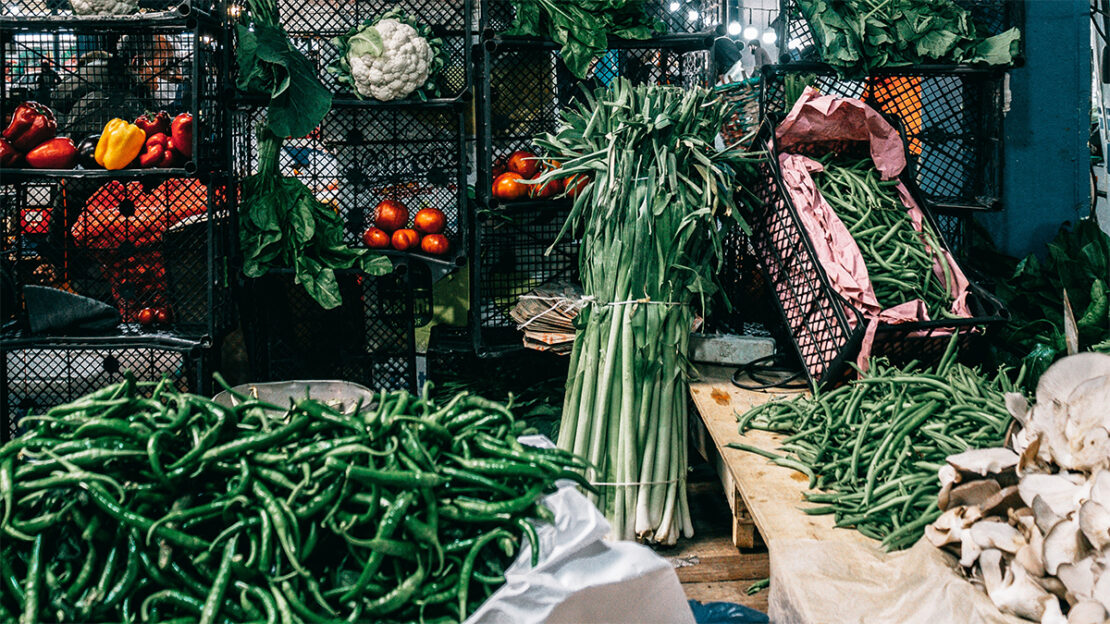Eighth plate is a pioneering environmental initiative that sets out to help festivals salvage surplus food and redistribute it to local food charities. The project was set up in 2015 by The Nationwide Caterers Association (NCASS) and A Greener Festival, and worked with UK festivals and their food traders to prevent over 23 tonnes of food being unnecessarily wasted in their first year of operating. In this blog the team at NCASS shares the aims of the project, the positive impact of the scheme at Glastonbury and Boomtown and they give a step by step plan for how all organisers can use the EighthPlate model at their own events to prevent good food from going to waste.
“Every year in the UK, 400 tonnes of food is wasted at festivals: that’s around 953,352 meals. A stark figure in itself, and all the more so when you consider both the impact this has on the environment (1 tonne of waste = 4 tonnes of CO2) and the fact that thousands of people in the UK live in food poverty; a figure set to rise exponentially in 2022 as we face unprecedented levels of inflation.
The need for an initiative such as EighthPlate had been apparent for some time and was finally born in 2015 when NCASS and A Greener Festival joined forces. That year, whilst EighthPlate was in its first season, surplus food collections jumped from 8 tonnes per year to over 23 tonnes; instantly confirming the industry’s need for the project to exist.
Here we share how the scheme ran at Boomtown and Glastonbury and how organisers can replicate the model at their events.
Boomtown
In 2019, the event organisers at Boomtown, a leading four-day festival in Hampshire had a mission to create the most sustainable Boomtown to date; their aim was to secure up to three tonnes of food waste. A combination of rain, strong winds and stressed-out, tired traders who were mid-event season, meant that the project proved more challenging than anticipated.
However, out of approximately 60 traders, two thirds had the potential for salvageable food and in spite of some logistical difficulties around weather and reduced numbers of volunteers, a tonne of food was salvaged by Boomtown with two ambassadors and five volunteers.
Glastonbury
In the same year, and as the first and largest festival of the season, Glastonbury posed unique challenges on account of its sheer scale. However, this also meant that is posed an excellent opportunity for food salvage. In our first year working on-site, we salvaged:
- 7.473 tonnes of food
- 3.432 tonnes from campsites
- 4.041 tonnes from traders
- 17,793 meals distributed
- 180 organisations received food as a result
Want to reduce food waste at your event? Simply follow these steps:
- Get in touch with NCASS
- Read the information sent over and decide if this is doable for your event
- Contact your traders and appeal for an ambassador
- Secure your ambassador (they will commit to taking the food off-site to a pre-arranged charity)
- Look into using volunteers, or the caterers from your event to deliver surplus to ambassador
- Inform caterers of the project – ask them to fill on documentation to gage surplus levels
- Research charities and contact them to arrange food drop off
- Send volunteers instructions
- Ensure the caterers or volunteers know where the ambassadors are positioned
- A few hours before the festival closes, be sure to visit the traders and gage waste levels
- Check, record and collect the surplus
- Store it correctly with the ambassador
- Ambassador drives it off-site to charities
- Food salvage complete
DOWNLOAD THE PDF OF THIS CHECKLIST
For any more information please contact: demi@ncass.org.uk or visit the NCASS website.
This guest blog originally appeared in our February 2022 Vision: 2025 newsletter. Sign up to receive monthly event sustainability news, case studies and guest blogs direct to your inbox using the form below.
Photo by Meruyert Gonullu from Pexels


